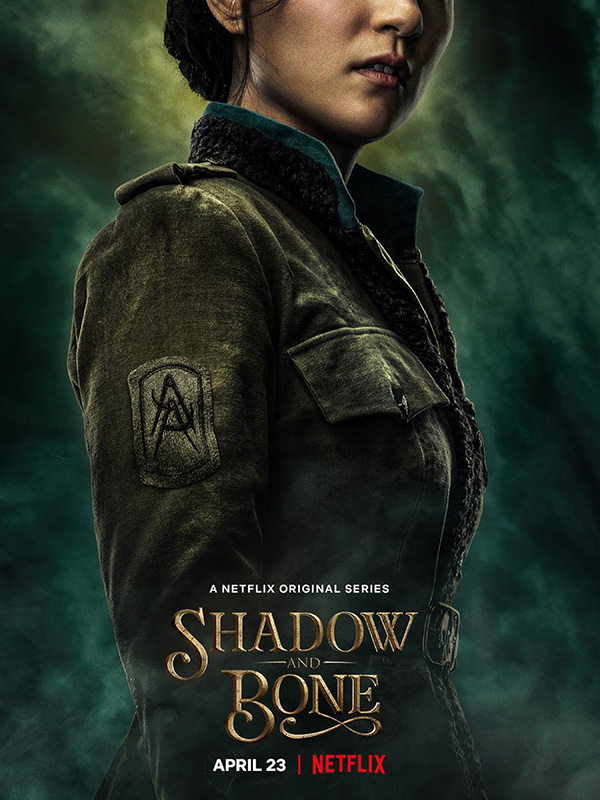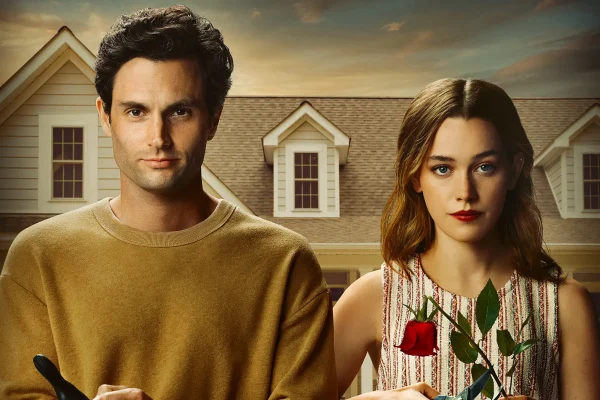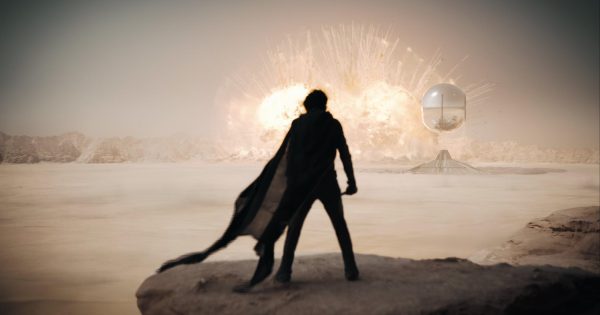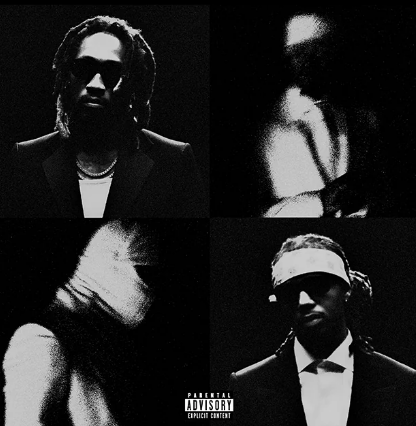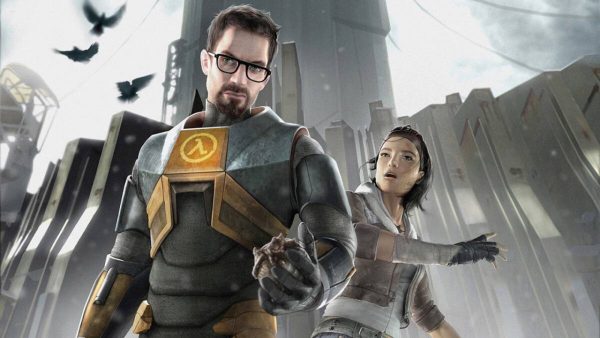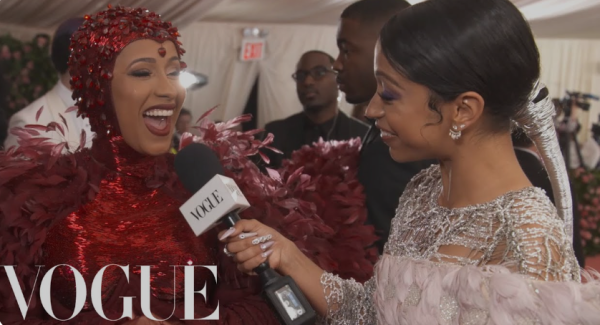Shadow and Bone: Light of My Life
Have you ever dreamed of your favorite book becoming a show? For fans of Leigh Bardugo’s YA fantasy series Shadow and Bone, Netflix fulfilled their wishes, making their wildest avid book fanatic dreams come true.
The story of Shadow and Bone is perfect for anyone aimlessly searching through the fantasy genre. Set in a fantasy kingdom inspired by 19th-century Tsarist Russia called Ravka, a treacherous, impassable area filled with deadly monsters and shrouded in darkness called the Fold divides the country and dominates its citizens’ nightmares. In the “Grishaverse” (as fans have affectionately coined the source material universe), there are humans with abilities that allow them to magically manipulate matter called Grisha; their powers range widely, from fabricating powerful weaponry to controlling the wind and even stopping hearts. The show follows a girl named Alina Starkov, who finds out her power as a near-mythical Sun Summoner while on a deadly journey across the dreaded Fold. The Sun Summoner is the most powerful Grisha—and she now possesses the key to destroying the treacherous Fold for once and for all.
It’s true that Shadow and Bone’s “chosen one” trope may at first seem cliché—but with lavish costumes and stunning music from the very first episode, the show immediately draws in the viewers… and who doesn’t love some good music to set the scene?

The show also does an impressive job building upon the elements of the books that readers enjoyed. Without spoiling anything, the primary storyline is gripping, emotional, and even more intricate due to two of Leigh Bardugo’s bestselling book series, Six of Crows and Shadow and Bone (both set in the same universe of Ravka), integrated seamlessly into this show as one.
While this integration may sound confusing, the writers accomplish the feat in a way that leaves readers even better able to fully understand the world and setting. By providing a quick first introductory episode that cuts to every major character from the two series, along with revealing their backstories through subtle hints in the dialogue, it doesn’t take long for readers to understand how both worlds come together. Furthermore, the show greatly fleshes out the relationships in the book, and even alters the central love triangle to become slightly less toxic. In the books, one toxic relationship had been dominated by jealousy, and the other had toed the line of consent. But with slight personality, storyline tweaks, and the actors’ natural chemistry and camaraderie, all the relationships—whether platonic or romantic—are depicted in a way where fans can genuinely root for them.
To give background, the book series wasn’t perfect by any means. Bardugo, when writing the books, admits to the lack of diversity in the storyline, explaining how she “was really echoing a lot of the fantasies I’d grown up with, which were very white, very straight.” As an executive producer on the show, she did take steps to rectify this lack of diversity by deliberately making the Grishaverse (as fans of the show have called the universe her works are set in) more inclusive. The show notably stars Jessie Mei Li, a biracial (half-Asian) actor to portray biracial protagonist Alina Starkov, and the main cast consists of multiple non-white and queer actors—with the extra-plus that these actors are all relatively less well-known talents.
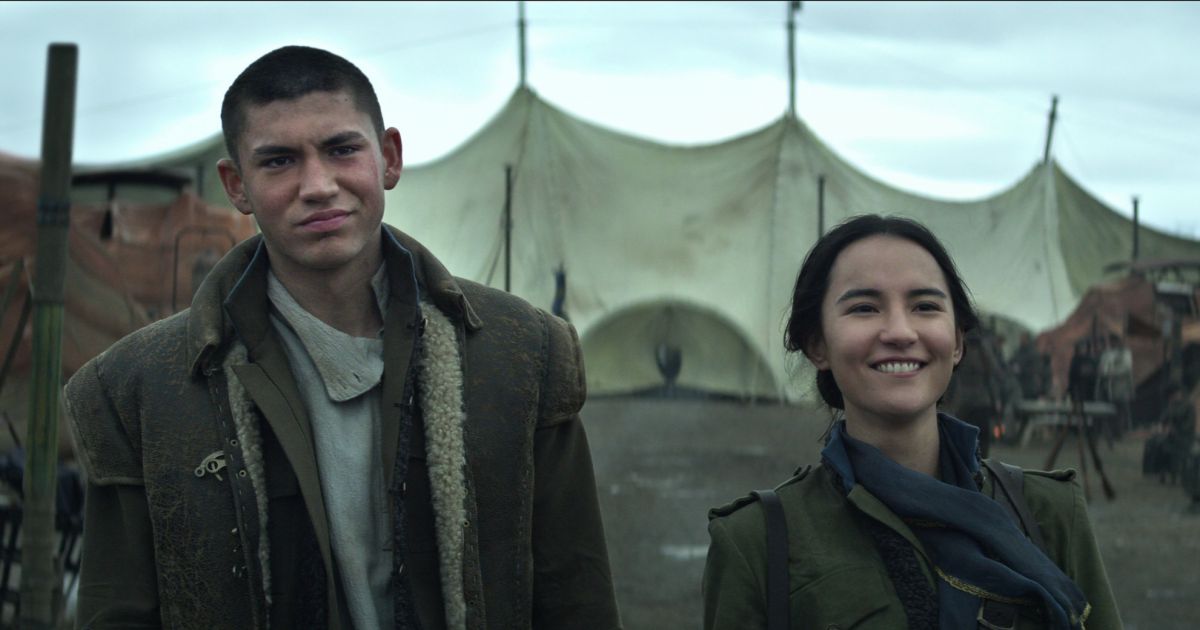
However, the show still has room for improvement. It is a bit frustrating to see Alina’s biracial identity merely touched upon, yet barely explored beyond “she looks different/similar to the country we are at war with, therefore we don’t like her.” For instance, why is Ravka at war with this other “foreign” country they call the Shu Han? Is the discrimination just based on geographical lines, or the race or ethnicity of the characters? While these questions may sound superfluous, the show should at least attempt to bring in a more nuanced perspective to the series beyond “discrimination exists, and it is bad.” Yes, perhaps these fantasy books and shows are more about fighting monsters and escapism rather than about real world topics like discrimination, racism, or colonialism. But if the show even brings up discrimination, incorporating a more complete and realistic backstory to characters’ identities, along with why and how they face prejudice, could truly better complete the characters’ arcs.
Altogether, I hope writers can fully address these disappointing aspects of the show by the next season, I would argue that this show is still an absolute must-watch for both fans of Leigh Bardugo’s novels, as well as those who’ve never even heard of this series before. From getting to see cool powers on display in a well-written storyline set in a lush fantasy world, to witnessing a goat save the cast (if you’re wondering what I’m talking about, that’s a good reason for you to watch the show), I can guarantee that you’d find yourself binge-watching through all eight episodes in one day.


